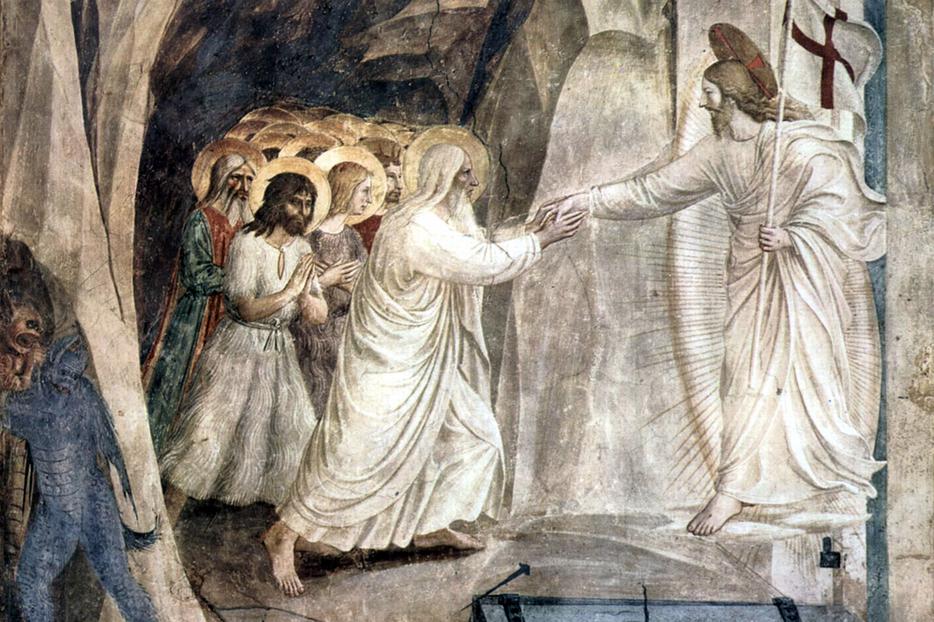Death Is Not the End
“One short sleep past, we wake eternally/And death shall be no more; death thou shalt die.” —John Donne, Sonnet X

When the novel Memento Mori made its initial splash back in 1958, it was greeted with both critical and popular acclaim. But the story, while written by a gifted and clever young woman by the name of Muriel Spark, dealt with a subject not at all popular: Death. One of those unmentionable things, you know, like sex used to be among maiden aunts of a certain Victorian vintage. Nevertheless, it managed with considerable elegance and wit to shatter a good deal of the silence surrounding so doleful a subject.
An old woman called Dame Lettie Colston, on whom the story opens, is writing a letter when her phone rings and she hears a voice telling her, “Remember you must die.” It is the ninth time the mysterious caller has telephoned to remind her. How very thoughtful of him to call first. And while other members of her set are receiving the same call, few appear to be the least bit grateful for the summons. One striking exception, however, is old Granny Taylor, who seems to have gotten her dying done every day. “A good death,” she tells the reader, “doesn’t reside in the dignity of bearing but in the disposition of the soul.” Indeed, her own is movingly recalled at the very end of the story, in which we learn that she “lingered for a time, employing her pain to magnify the Lord, and meditating sometimes confidingly upon Death, the first of the Four Last Things to be ever remembered.”
Such is the Christian response to death, which — truth to tell — is the only sane or hopeful view one can take. And what is its defining message? Indeed, God himself came to deliver it, incarnating the truth of it in his Son’s body? And what an astonishing claim it is, too. That those who cling to Christ, wedding themselves to his Word become flesh, will not only be given the grace to face death, to endure all the horror of an apparent final separation from all that they know and love, but that they shall in fact be empowered to surmount death, to vanquish it forever. Few words have proven to be more powerful than these. “Truly, truly, I say to you, if anyone keeps my word, he will never see death” (John 8:49-51).
Yet, isn’t this precisely what faith promises? In Jesus Christ the whole of our mortality, every suspect square inch of it, is destined to undergo an absolutely unheard-of transformation. We shall all shine like the sun. Only a God of love could pull off a miracle like that. A love so powerful that it raises man from the ground to which he has fallen, and gathering up all the broken pieces left by sin and death, will place him squarely upon a throne of unending glory. Wily death will have been thoroughly undone, leaving the Old Guy helpless at the last, thanks to the power of an unvarying eternal love. The ruffian on the stair, as some have called him, who lies in wait to pitch unsuspecting souls right off the bannister, will have been disarmed at the very moment he had decided to strike. The threatened theft and violence he represents becoming, in the mysterious alchemy of grace, sudden and immeasurable increase of life.
Who could imagine such an outcome? Death itself shall die, thus fulfilling the great promise made to Israel in the words of the prophet Hosea, who, in the accent of Almighty God himself, delivers the incredible guarantee: “I will deliver them out of the hand of death. I will redeem them from death: O death, I will be thy death. O Hell, I will be thy bite” (Hosea 13:14). Here is the great theme of Hebrew hope, no less than God’s own lasting assurance, which St. Paul will later give consummate expression to in his First Letter to the Corinthians: “For this corruptible must put on incorruption; and this mortal must put on immortality, then shall come to pass the saying that is written: Death is swallowed up in victory. O death where is thy sting” (1 Corinthians 15:51-58).
Death plays no part, in other words, in man’s essential being, his subversive work having been the result of the world we made, or rather unmade, God never having intended that we should die in it. “For God created man for incorruption, and made him in the image of his own eternity,” the Book of Wisdom reminds us, “but through the devil’s envy death entered the world, and those who belong to his party experience it” (Wisdom 2:23-24). For all its shattering of the original body-soul unity, death belongs to that order of history bloodied by human sin. A world which Christ freely suffered to enter in order to rid us of its malice — indeed, to deliver us from the absurdity and finality of death.
And why is this? Because when Christ agreed to die for us, something quite extraordinary happened to death, altering the entire equation, so dismally drawn between sin and death. Thus, in cleaving to Christ, in placing our hope in the event of his cross, which succeeds in putting sin and death to flight, the so-called “victory” of death is only apparent. How wonderfully the Little Flower has put it, striking the deepest chord of Teresian hope: “So death will come to fetch you?” she asks. “No, not death, but God himself. Death is not the horrible specter we see represented in pictures. The catechism teaches that death is the separation of the soul from the body; that is all. I am not afraid of a separation which will unite me forever with God.”
- Keywords:
- death
- jesus christ
- eternal life

















